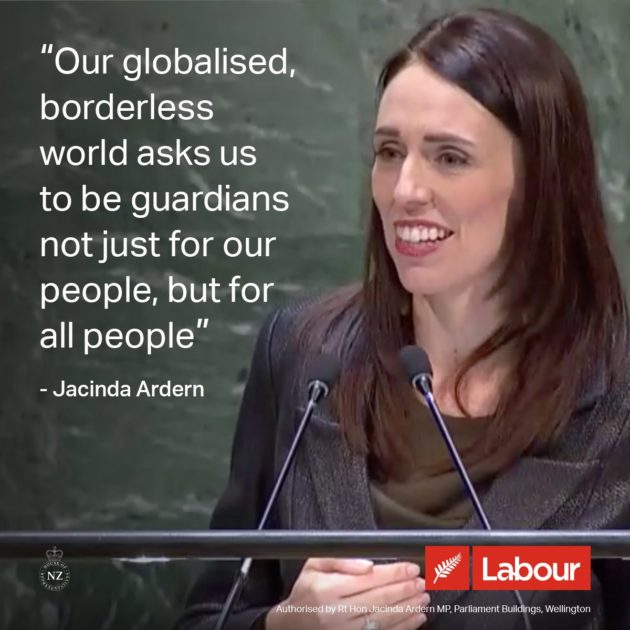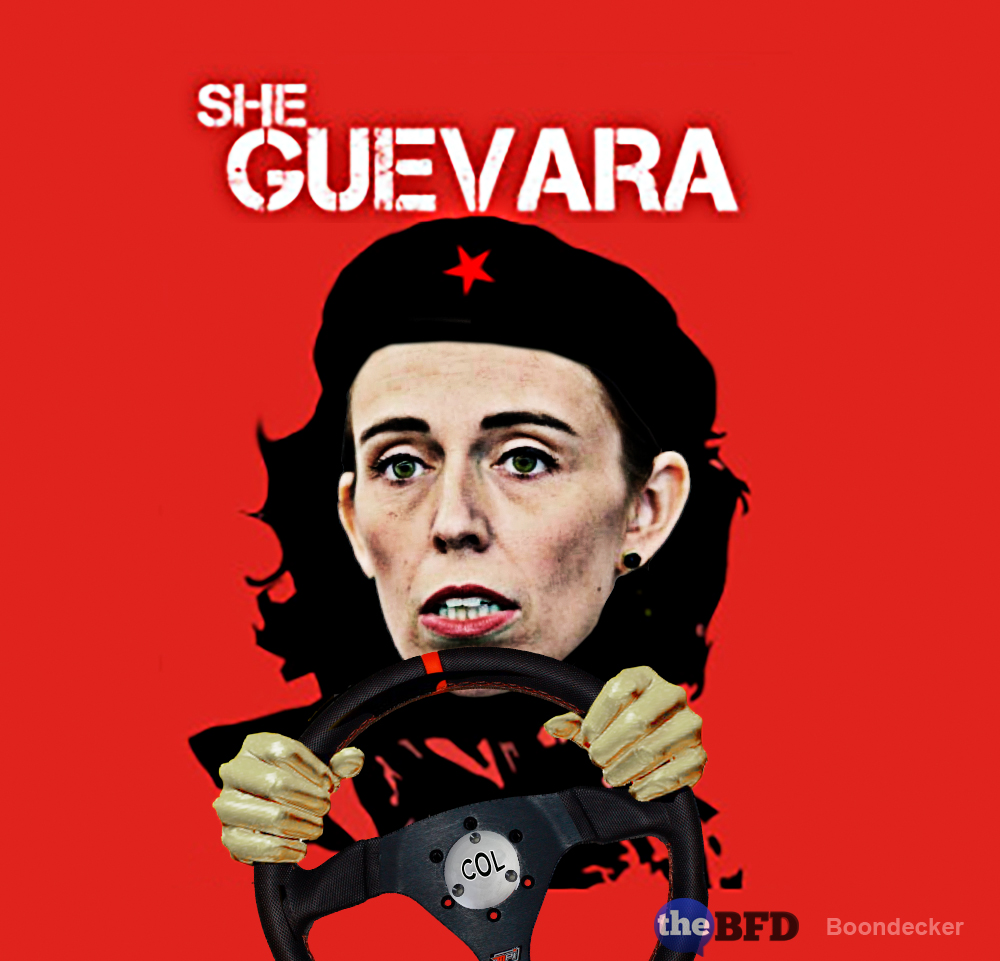Thinking about our relationship with the UN, who comes to mind? Her mentor would be proud of her pupil, and possibly even wrote Ardern’s National Statement for her, delivered at the UN General Assembly to a sparse, disinterested and partially comatose audience.
Predictably, Ardern spoke of “kindness” and “climate change” but nestled in there were a couple of never-before-mentioned nuggets. Thank goodness some people back home were paying attention!
Judith Collins was most unimpressed, her hackles rose and she tweeted “Borderless!!! What in the world is this PM doing? Open borders??”

Indeed, what was Ardern thinking? Well, first and foremost we must remember that Ardern is a UN sycophant, more than happy to sit back and let them tell her how best to run the country – including opening our borders.
But Winston Peters was also paying attention, but more likely he was privy to the speech before it was delivered, because three days ago (Ardern delivered her speech two days ago), he preempts the question, furiously backpedalling on his pre-election promise to “cut immigration by up to 60,000 people a year.”
“Deputy Prime Minister Winston Peters says the Government is striving to address the quality of immigration, saying ‘it’s not whether it’s too high it’s whether you are getting the right people‘ that matters most.”
Interest.co.nz
A divided CoL aside, Ardern, crucially, gives us our first insight into her patsy role at the UN for Aunty Helen which is much more about driving change than about representing us. She begins with Security Council reform.
“[…] ultimately it is up to us – the Member States – to drive change at the UN. This includes reforming the Security Council.
If we want the Council to fulfil its purpose of maintaining international peace and security, its practices need to be updated so it is not hamstrung by the use of the veto.”
Ardern’s Address to the UN September 2019 transcribed on Stuff
The power of veto is available only to the five permanent members of the United Nations Security Council (China, France, Russia, United Kingdom, and the United States) and can only be used to prevent the adoption of any “substantive” resolution. It is arguably the most important distinction between permanent and non-permanent members and also the most controversial aspect of UN operations.
“Permanent members use the veto to defend their national interests, to uphold a tenet of their foreign policy or, in some cases, to promote a single issue of particular importance to a state.
Since 16 February 1946—when the Union of Soviet Socialist Republics (USSR) cast the first veto on a draft resolution regarding the withdrawal of foreign troops from Lebanon and Syria (S/PV.23)—the veto has been recorded 290 times.
In the early years, the USSR cast most of the vetoes, with a considerable number of these used to block the admission of a new member state. Over the years,
the USSR/Russia has cast a total of 141 vetoes, or close to half of all vetoes. The US cast the first of its 83 vetoes to date on 17 March 1970 (S/9696 and Corr. 1 and 2).
UN Security Council Report
Playing out in the UN is the struggle between the two most powerful nations – the USSR/Russia and the USA. The temptation for large nations to become catalysts for the decimation of much tinier nations in the Middle East and Africa because of their valuable national resources and strategic import can be too great to resist, and the UN has been largely impotent in stopping them.
Until the USA began exercising its veto right at the UN the USSR/Russia had dominated the Security Council but they are now arguably neck and neck, meaning removing the right to veto will equally dis-empower both. But behind this move is another. For the past year, the UN has been discussing reforming the Security Council, whether to add to the five permanent members or abolish the permanent member’s veto power, or both, because African nations feel neglected and are clamouring for better representation.
“Sierra Leone’s representative, speaking on behalf of the African Group, spotlighted that most issues discussed in the 15?member organ are related to his continent. Its 54 nations must be involved in decisions concerning not only international peace and security, but its own very continent. Africa demands no less than two permanent seats, including the veto power, if it remains, and five non?permanent seats. Widespread support from Member States for this position means that it is time to “redress the historical injustice of not being represented in the permanent category”.
United Nations
It seems highly likely Ardern is preparing the ground for satisfying African demands by the UN granting them permanent member status, but not the power of veto which it will deprive them of by removing it entirely.
It appears Ardern has waded into the dispute at someone else’s behest and whether she represents our values or not, she represents us.
“I’m struck as a leader attending my first United Nations General Assembly by the power and potential that resides here. But in New Zealand, we have always been acutely aware of that.”
Jacinda Ardern Address to the UN September 2019
Ardern’s claim of NZ awareness is not true. Given the UN’s ineffective history most New Zealanders would not recognise either its power or its insidious destructive potential, but Arden’s patsy role in driving change within the UN has become clear.

